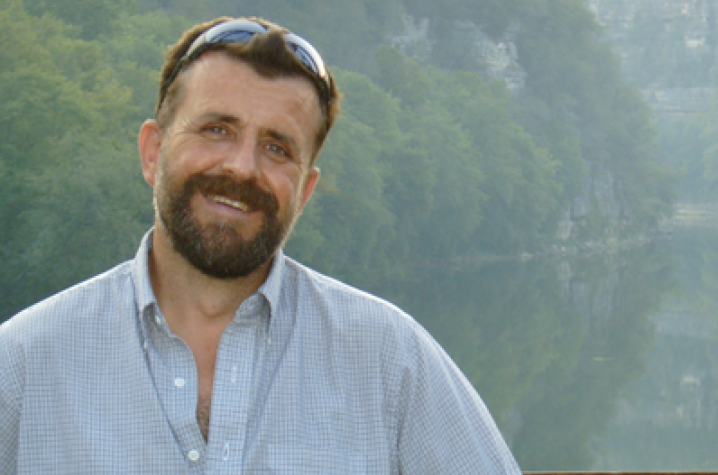A New View of Global Ethnic Conflict

LEXINGTON, Ky. (May 5, 2010) –Ridvan Peshkopia knows a thing or two about social divisions in the Balkans, having grown up in Albania.
But while the University of Kentucky political science doctoral student agrees with the opinions of his philosophical predecessors like Warren Zimmerman, he feels that the international philosophy on ethnic conflict needs to be revised.
There are many theories that have connected race, gender and economic class to tension, and many feel that economic deprivation specifically leads to conflict.
"It goes beyond economic frustrations," Peshkopia said. "Yes, cultures do clash when money is involved, but the bond of a mother with a mother and a worker with a worker transcends economics and ethnicity."
Peshkopia will have a chance to prove his theory this summer through a Western Balkans Regional Research Promotion Programme grant awarded by the Swiss Agency for Development and Cooperation and University of Fribourg.
The grant, supervised by the University of New York, Tirana, Albania, is worth over $80,000, and Peshkopia will have the opportunity to renew the grant for 2011.
Peshkopia's research project, titled “Beyond Ethnic Divisions: The Underestimated Dimension of Social Divisions in the Balkans and Their Impact on Social Cohesion and Democracy,” will attempt to highlight the incompatibility between ethnic and socio-economic divisions.
He and his team argue that nationalism and its extreme outcome, ethnic conflict, might not be produced by socio-economic deprivations. Instead, conflict emerges in conditions of highly uniformed ethnic groups where individual belonging cannot be found in other social categories.
"I believe that a Bosnian mother identifies more with a Serbian mother than a Bosnian mother identifies with her Bosnian community," explained Peshkopia. "I'm going to show that this bond exists through my surveys in the region this summer."
In order to successfully conduct the research, Peshkopia has created a team that includes researchers from Albania, Bosnia and Herzegovina, Kosovo, Macedonia, Montenegro, Serbia and the United States. The team will focus on divisions based on gender, race, sexual preferences and class in the Balkans, and how they affect and are affected by ethnic divisions.
Peshkopia will also be teaching research methods classes throughout the area; his students will then help him with the surveys. "The kids will get experience, and locals will be given surveys their own way," he explained.
When Peshkopia returns to the U.S. in August, he will process and analyze his Balkan findings during a one-year postdoctoral fellowship with George Washington University's Elliott School of International Affairs.
Peshkopia hopes to expand social theory in the Balkans through his work this year. "I want Albanians and the world to understand the problems of their society," he explained. "I want to increase awareness and knowledge."




